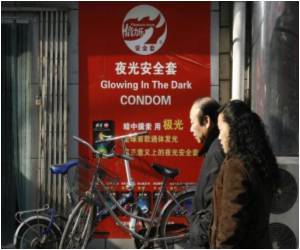A Spanish daily, which has refused to accept lucrative prostitution ads, has launched a three-day front-page investigation linking the ads to sex traffickers.

One ad highlighted in the investigation shows the silhouette of a woman and the words "Sex Slave. Literally."
The anti-prostitution ad campaign comes days after Prime Minister Jose Luis Rodriguez Zapatero's call for a ban of these ads.
According to an American Online report, the ban, if imposed, could cost stakeholders millions that they make by the often-graphic newspaper classifieds that are generally placed not by individual prostitutes but by the gangs of men controlling them.
The ads, in turn, help fuel the alarming rise in sex trafficking in Spain.
"As long as these ads run, they are contributing to the idea that this activity is normal," Prime Minister Jose Luis Rodriguez Zapatero said in a recent address to the nation.
"There is so much money behind these ads, and the money comes from a horrible business," Rebeca Queimalinos, the reporter for the 20 Minutos investigation, told AOL News.
"The people behind the ads aren't the women; it's the Mafia who deals in the exploitation of these women," she added.
Zapatero, who was elected in 2007 and is a vocal supporter of women's rights, said his administration plans to study how it can eliminate the ads from newspapers. Spain is the only European country where mainstream, dignified newspapers carry graphic sex advertisements.
The Association of Spanish Newspaper Editors responded to Zapatero's proposal by saying the plan was unconstitutional and that it would make more sense to outlaw prostitution.
Spanish ads for prostitution are usually paid for by groups of sex traffickers from Romania, Nigeria and countries in South America, not individual women, the Guardian reports.
The system of pimps exploiting the women leaves them "in a state of near slavery," it adds.
Source-ANI











